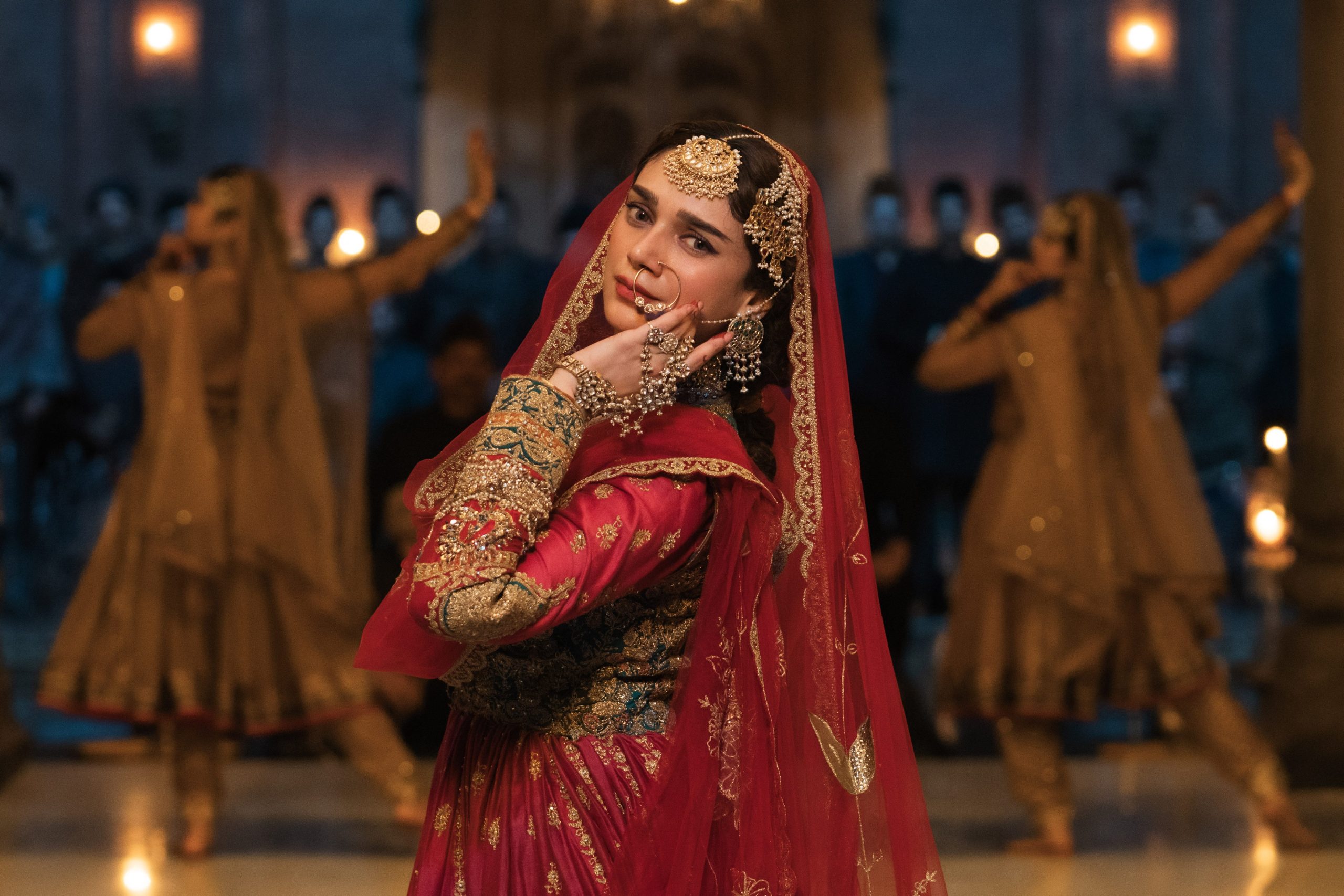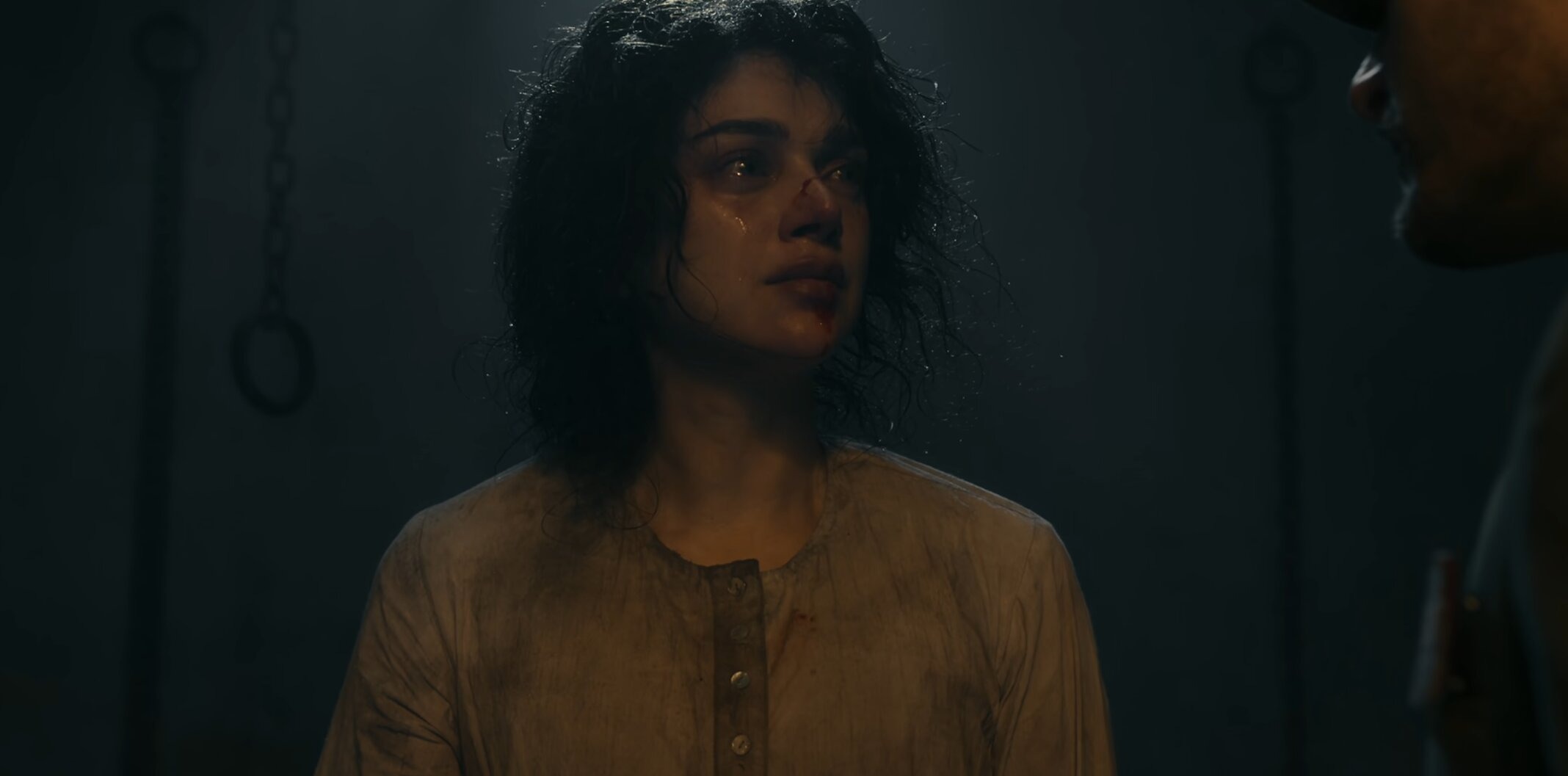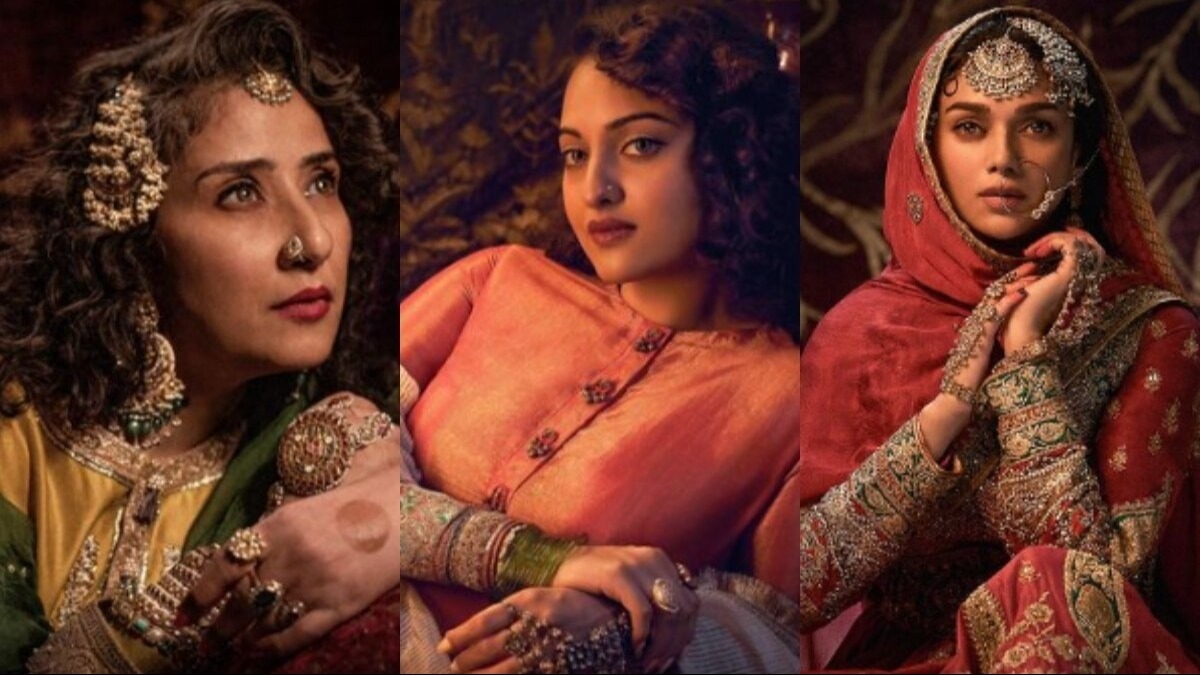Rather than just being a painful moment, Alam’s realisation that Tajdar is dead throws her into deep sorrow. Saim stands firm in his support, refusing to let her drift into a darker path. He urges her to pay her respects at Tajdar’s grave, knowing that it would help her begin the grieving process.
On the other side, Tajdar’s father cannot hold in his anger and directs his blame at Cartwright, insisting he is responsible for his son’s death. The British point fingers at the rebels, claiming they killed Tajdar. Meanwhile, it becomes clear that the funding for the weapons that caused the deaths came from the same Heeramandi.

Despite the weight of loss, this episode brings forward the idea that something meaningful can still follow tragedy. Alam is expecting Tajdar’s baby, and this introduces the message of “life after death.”
Tajdar’s mother also plays a quiet but touching role by giving Alam a family heirloom, one she had planned to hand over after the wedding that never took place. Through this gesture, Alam’s presence is validated, and she is no longer seen just as a tawaif.
Enemies Mallikajaan and Fareedan Unite for Freedom
It comes as a surprise when two old enemies, Mallikajaan and Fareedan, finally set their hostility aside. Their history has been drenched in betrayal, lies, and bloodshed, yet they both recognise that something bigger is at stake—freedom.
Each of them holds the other responsible for Alam’s tragic fate, and in a strange moment of reckoning, Mallikajaan offers Fareedan the keys to Heeramandi. She sees Fareedan as being just as cunning and brutal as herself and considers this as enough reason to call her the rightful successor.
Even though the logic seems questionable, it reveals Mallikajaan’s understanding of power.
Bibbo, the transformed Freedom Fighter
As the situation worsens, the rebels are forced to hide their weapons inside Heeramandi under the cover of darkness. This desperate act ends up costing more lives—Rizwan sacrifices himself so the rest can escape.
There is barely any time to cry over Rizwan’s loss, as the nawabs come together to announce a boycott of Heeramandi. This move is not only about freedom being in danger; the women’s entire existence and identity as courtesans also hang in the balance.
Bibbo takes this moment to address the women passionately, declaring that they should no longer live under anyone’s control and must rise to fight for their freedom. Her words hold weight, making it clear that these women refuse to remain boxed in by the title of tawaif.
Bibbo’s actions take a sharp turn in Episode 8 when she murders General Henderson at an event attended by British authorities and nawabs. The news spreads rapidly, and her mother, Mallikajaan, is filled with pride. But tragedy strikes again as Hamid is killed during the violent outcome that follows.
This moment drives home the harsh truth of revolutionary times—no one is truly safe.
Heeramandi: The Diamond Bazaar’s Ending is Filled with Tragedy and Meaning
By the time the final part of Episode 8 plays out, the show offers a touching but painful closing. Bibbo is captured, tortured, and questioned repeatedly by the British forces. Still, she answers every question with a single word—“freedom.” Her courage doesn’t save her, and the British sentence her to death.

On the other end, desperation pushes Ustaadji to convince the pregnant Alam to seduce and then kill Cartwright. As the story reaches its peak, the women of Heeramandi march through the streets holding torches and singing songs of freedom.
They go directly to the nawabs, standing their ground, and continue to the prison. They aim to reach the place where Bibbo is being held before her execution. In the final moments, just before Bibbo is killed, she cries out, “Long live…” and the other women respond with “the revolution.”
This powerful scene is one of the strongest points in the entire series. After that, silence takes over as Bibbo is executed. Meanwhile, Alam completes her mission by killing Cartwright. The series ends with a narrator reminding viewers that tawaifs knew what freedom meant, even if their contributions were later forgotten.
Although India gained independence on 15 August 1947, women’s hardships didn’t end with that victory. This final episode had far more depth than I had anticipated. While I had my complaints along the way, I feel satisfied with how the story rounded off.
The show closes with a bold message—not to forget the women who were seen as unimportant during key parts of history, and how society continues to disappoint women even today.



